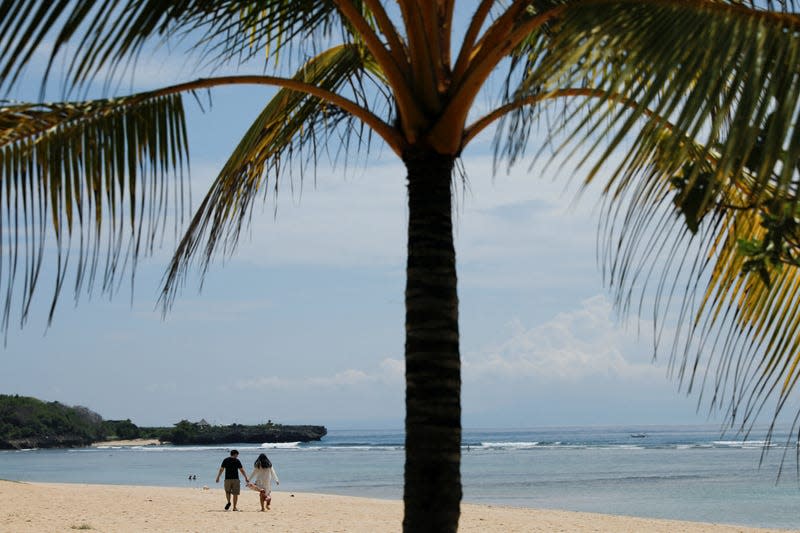The auction of 100 untouched Indonesian islands offers a unique chance to the super-rich

- Oops!Something went wrong.Please try again later.
The less-untouched Indonesian island of Bali
Sotheby’s is auctioning development rights to what its own literature calls “one of the most intact coral atoll ecosystems left on Earth”: a group of 100 Indonesian islands that are home to irreplaceable biodiversity. At a time when billionaires like Amazon’s Jeff Bezos are queuing up to give away their fortunes, and when their efforts are more discredited than ever, wouldn’t it make sense for one of the super-rich to buy these development rights—and then leave the islands alone?
The idea of protecting land—particularly forested land—just by buying it and then not trying to change or exploit it isn’t new. Across the US, particularly, but also elsewhere, private forest ownership plays a big role in conservation, often via a system of transferring property rights, voluntarily and permanently, to NGOs or other groups dedicated to protecting them. According to a 2018 paper by Christopher Nolte from Boston University’s department of earth and environment, roughly 10% of the world’s forested land is privately owned.
Read more
Companies are also investing more in forests, noted the World Economic Forum, often in an effort to support their future business by attempting to mitigate climate change. Corporate efforts, though, range from protecting existing biodiversity to promises of tree planting that sometimes don’t materialise, or can even do further harm.
How can a billionaire help preserve forests?
It has been a mixed month for philanthropy. Bezos promised to give away the majority of his fortune, with a focus on fighting climate change. Mackenzie Scott, Bezos’ ex-wife, became one of the biggest living philanthopists. At the same time, Sam Bankman-Fried, the founder of collapsed crypto exchange FTX, has discredited philanthropy in general, and specifically the movement of effective altruism, both through his irresponsible business practices and his admission that a lot of his claims about wanting to do good weren’t true.
Buying the development rights to these islands—or indeed to other tracts of nature—and leaving them undisturbed is a good way for philanthropists and effective altruists to redeem themselves somewhat. (And, it must be said, a far better way for them to spend their money than pouring it into techno-futuristic research on the distant prospects of colonizing the galaxy.) It isn’t ideal, certainly, for a rich Western individual to buy and hold such biodiversity treasures. But the alternative—selling them to be developed for profit—holds no promise of solving the world’s environmental problems, or even the specific issues faced by Indonesia.
Palm oil and forest fires
Indonesia has a terrible record of protecting its own biodiversity, and for the most part, its palm oil industry is to blame. The industry deforested over 300,000 hectares of forest in 2012 alone, the peak year for deforestation to date, according to the non-profit news site Mongabay. This has led to some spectacularly destructive forest fires, resulting from the draining of peatland forest for palm oil cultivation. Fires in Indonesia in 2015 could have led to 100,000 premature deaths, according to one Harvard study, and emitted as much CO2 as the entire UK economy, Greenpeace estimated.
The record of international property development companies doesn’t recommend them as stewards of a virgin atoll network either.
PT Leadership Islands Indonesia, the company due to carry out the development of the islands, has budgeted $1.5 million for “security patrols,” the Guardian reported. The company wants to keep out anyone without the “right” to be there, such as poachers and, presumably, would-be tourists unwilling to pay to stay the exclusive resorts planned for the islands. Who else—and what scrutiny—are they going to keep out? And is this really the best way to protect one of the last wild places on earth?
More from Quartz
Sign up for Quartz's Newsletter. For the latest news, Facebook, Twitter and Instagram.

